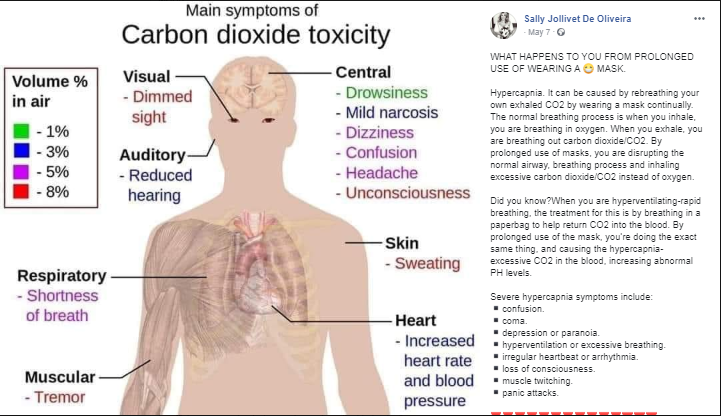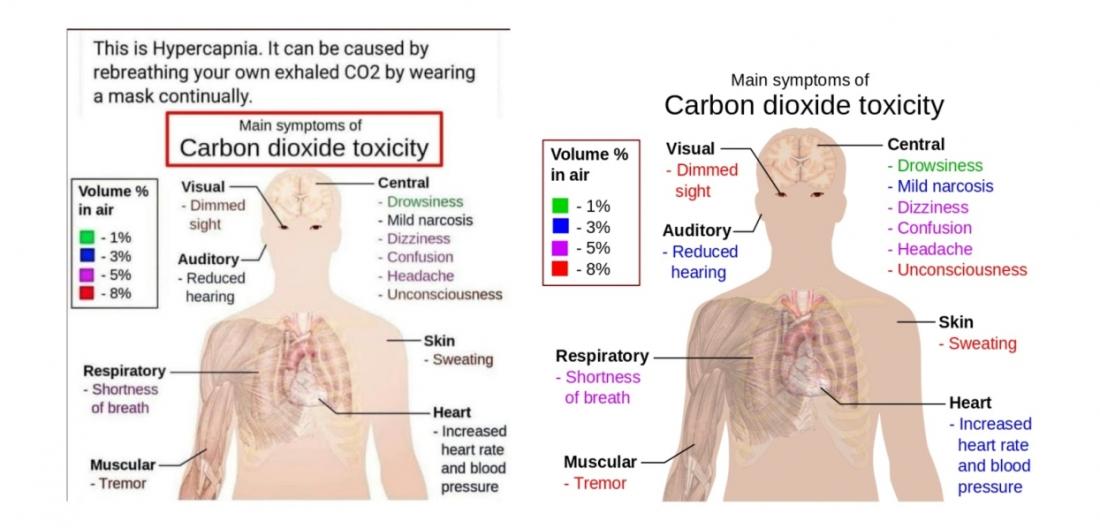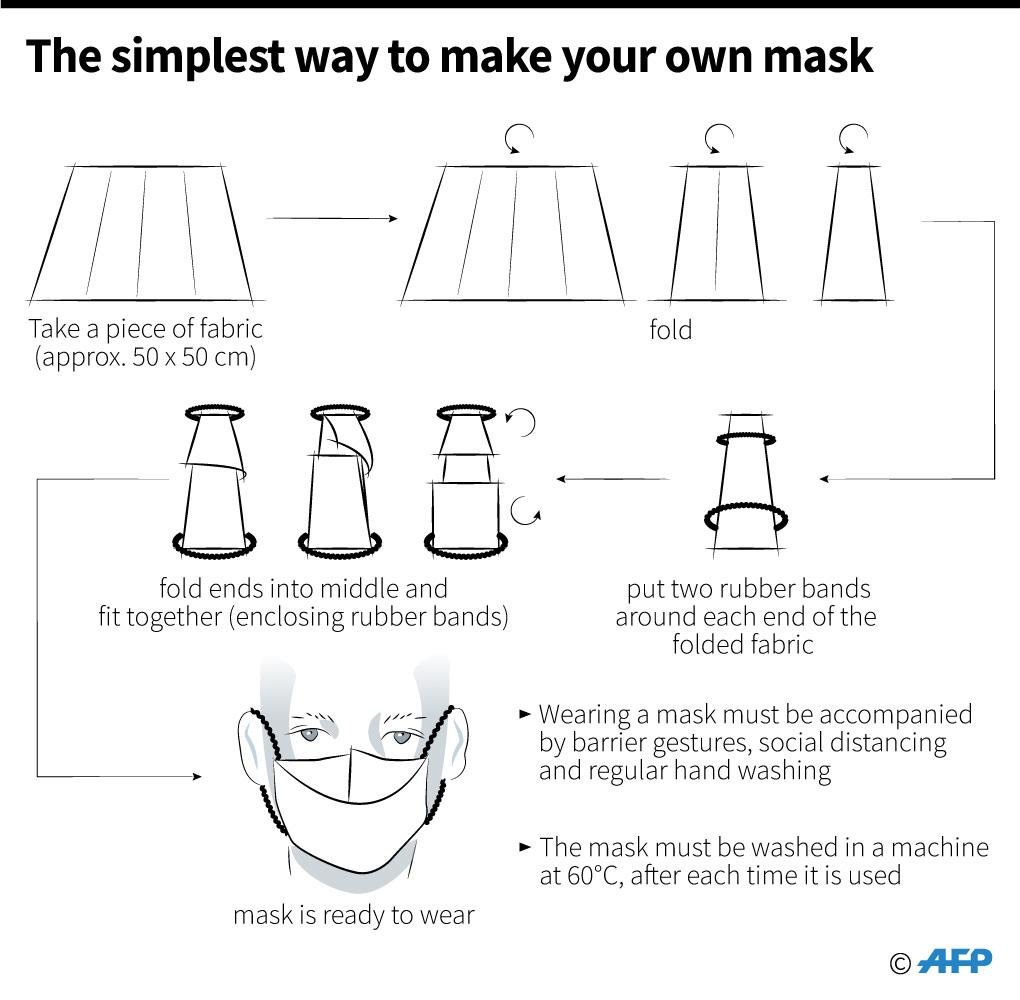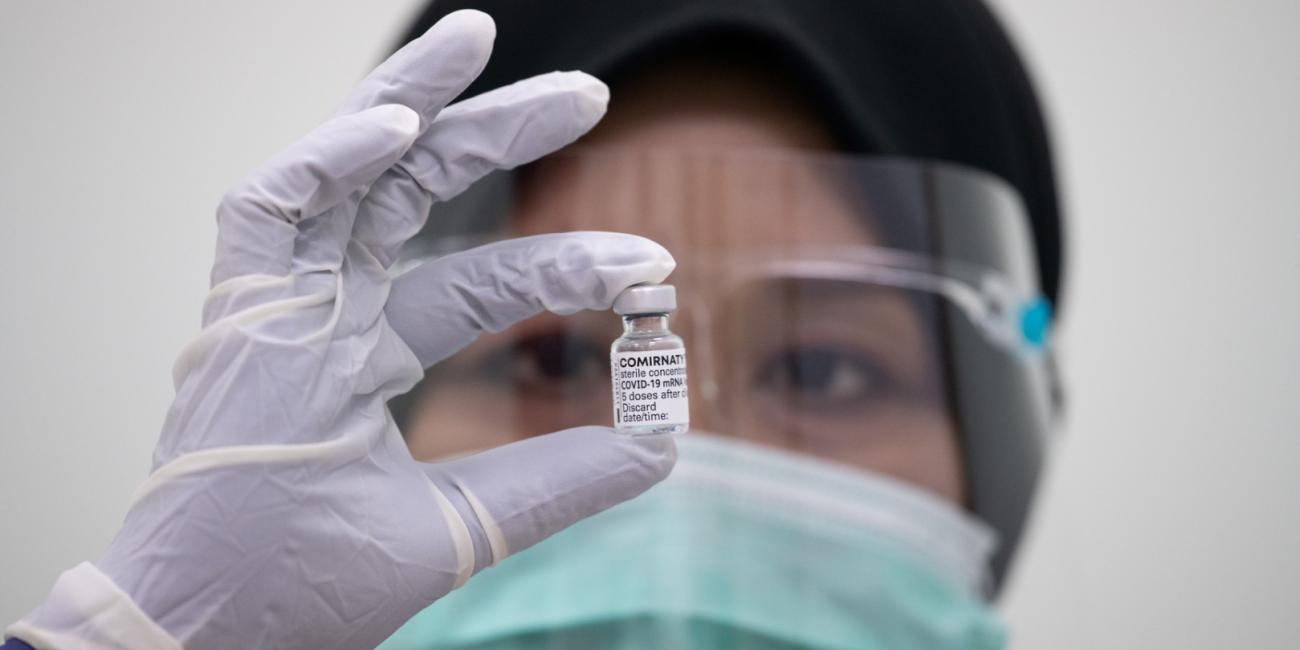
Prolonged use of face masks unlikely to cause hypercapnia
- This article is more than five years old.
- Published on May 18, 2020 at 17:16
- 3 min read
- By Tendai DUBE, AFP South Africa, AFP Thailand
"Hypercapnia. It can be caused by rebreathing your own exhaled CO2 by wearing a mask continually," reads the caption on a Facebook post shared more than 200 times since it was published on May 7, 2020.
"By prolonged use of masks, you are disrupting the normal airway, breathing process and inhaling excessive carbon dioxide/CO2 instead of oxygen".

The claim is repeated in Facebook posts shared hundreds of times here and here. However, the posts do not specify a type of mask or define the "prolonged" use.
The claim surfaced in other parts of the world, including Asia. As AFP Thailand's fact check explains, the picture in the misleading post was originally published in the WikiJournal of Medicine and credited to its founder, Swedish physician Mikael Häggström.
However, unlike the misleading Facebook posts (below left), the original image (below right) does not claim that wearing a face mask can cause hypercapnia.

Hypercapnia or hypercarbia is a build-up of carbon dioxide in the blood which usually happens as a result of hypoventilation, or not being able to breathe properly and get oxygen into the lungs.
Symptoms of mild to moderate hypercapnia usually include anxiety, shortness of breath, daytime sluggishness and headache. It can affect people who have chronic obstructive pulmonary disease (COPD).
Experts reject claim
Shabir Madhi, professor of vaccinology at South Africa's University of Witwatersrand, told AFP the prolonged wear of masks could not cause hypercapnia.
There should be no issue "unless you are wearing a plastic impermeable mask," he said in an emailed response, adding however that care needs to be taken with very young children.
Wolfgang Preiser, who heads Stellenbosch University's medical virology division in South Africa, shared the same view.
"Certainly not if it is a proper mask and if one wears it properly. Remember surgeons have for decades been wearing masks for many hours at a time -- rare for them to pass out. And what about people in industries who wear masks day in day out?" he wrote in an email.
He said that cloth masks allow gases to pass through "very easily in both directions", due to the fact that they "struggle to keep the fine particles (droplets) out".
"Neither medical masks nor properly-done (DoH guidance) cloth masks will cause that [hypercapnia]".

Michael Herbst of the Cancer Association of South Africa also highlighted the fact that surgeons wear face masks without a problem.
"The average limb transplant surgery can last between eight to 10 hours. During this time, the surgical team wear facial masks that are better fitting than the average cloth mask worn during the COVID-19 lockdown, and yet the surgeon, doing the most intricate microsurgery, remains sharp and performs his/her job proficiently," he said.
However, Herbst also pointed to a study that looked at the relationship between headaches and the use of N95 respirators reserved for healthcare workers.
The 2006 study surveyed healthcare workers to determine risk factors associated with the development of headaches and the continuous use of the N95 face mask.
It found that "healthcare providers may develop headaches following the use of the N95 face-mask" and that "shorter duration of face-mask wear may reduce the frequency and severity of these headaches".

However, Kenyan infectious disease epidemiologist Mark Nanyingi warned that people suffering from chronic respiratory illnesses may exert unnecessary pressure on their lungs while wearing masks.
“A person with chronic obstructive pulmonary disease can easily suffer from hypoxia or hypercapnia while wearing face masks for prolonged hours as their lungs are already under pressure and doing so they place themselves at a higher risk,” he told AFP.
The US Centers for Disease Control and Prevention says cloth face masks should allow for breathing without restriction and fit snugly but comfortably.
AFP Fact Check has covered similar claims about the prolonged use of face masks causing hypoxia, a lack of oxygen in the body.
Copyright © AFP 2017-2026. Any commercial use of this content requires a subscription. Click here to find out more.
Is there content that you would like AFP to fact-check? Get in touch.
Contact us




